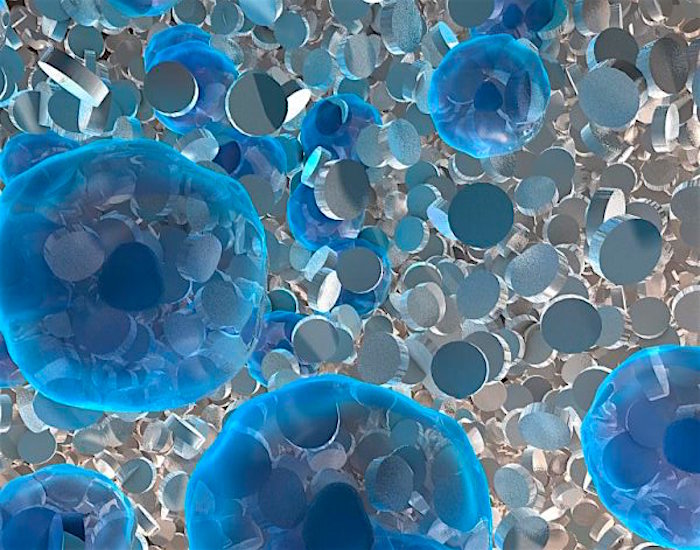 Researchers from Texas A&M University have developed a new way to deliver treatment for cartilage regeneration. According to lead researcher, Dr. Akhilesh K. Gaharwar, a new nanoclay compound offers sustained and prolonged delivery of therapeutic proteins to treat osteoarthritis, a degenerative disease affecting nearly 27 million Americans caused by the breakdown of cartilage and damage to the underlying bone.
Researchers from Texas A&M University have developed a new way to deliver treatment for cartilage regeneration. According to lead researcher, Dr. Akhilesh K. Gaharwar, a new nanoclay compound offers sustained and prolonged delivery of therapeutic proteins to treat osteoarthritis, a degenerative disease affecting nearly 27 million Americans caused by the breakdown of cartilage and damage to the underlying bone.
As America’s population ages, the incidence of osteoarthritis is likely to increase. One of the greatest challenges with treating osteoarthritis is repairing damaged joint tissues, especially as cartilage is difficult to regenerate.
One method for repairing or regenerating damaged cartilage tissue is to deliver a special class of proteins called growth factors to aid tissue repair and regeneration. However, currently available versions of growth factors break down quickly and require high doses to achieve a therapeutic potential. And unfortunately, recent clinical studies have revealed significant adverse effects from this kind of treatment, including uncontrolled tissue formation and inflammation.
In Texas A&M’s study, published in ACS Applied Materials and Interfaces, Gaharwar’s lab has designed two-dimensional (2D) mineral nanoparticles to deliver growth factors for a prolonged duration to overcome this drawback. These nanoparticles provide a high surface area and dual charged characteristics that allow for easy electrostatic attachment of growth factors.
“These nanoparticles could prolong delivery of growth factors to human mesenchymal stem cells, which are commonly utilized in cartilage regeneration,” Gaharwar said.
“The sustained delivery of growth factors resulted in enhanced stem cell differentiation towards cartilage lineage and can be used for treatment of osteoarthritis.”
“By utilizing the nanoparticle for therapeutic delivery it is possible to induce robust and stable differentiation of stem cells,” said Dr. Lauren M. Cross, senior author of the study and research assistant in the biomedical engineering department. “In addition, prolonged delivery of the growth factor could reduce overall costs by reducing growth factor concentration as well as minimizing the negative side effects.”
The research was supported by the National Institute of Biomedical Imaging and Bioengineering of the National Institutes of Health and the National Science Foundation.
Source: Lauren M. Cross, James K. Carrow, Xicheng Ding, Kanwar Abhay Singh, Akhilesh K. Gaharwar. Sustained and Prolonged Delivery of Protein Therapeutics from Two-Dimensional Nanosilicates. ACS Applied Materials & Interfaces, 2019; DOI: 10.1021/acsami.8b17733











